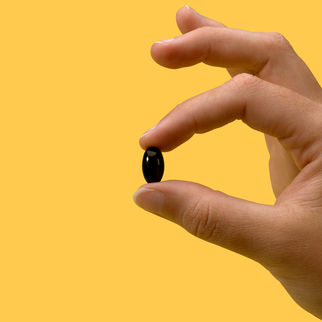Whether you’re an avid follower of a cardio routine, hooked on strength training, or prefer a mix, the motivation for fitness can stem from a range of goals.
Whatever your goals may be with your exercise program, it’s common to wonder how long it will take before you actually reach those goals.
By setting realistic expectations, we can maintain momentum and keep ourselves from feeling frustrated throughout the process. Let's shed light on the factors that can dictate the pace of your fitness transformation.
What Determines the Speed of Physical Results?
Everyone is different, and each person’s individual attributes can play a key role in determining the speed of fitness results. Here are the most significant factors that can affect your progress:
Genetics
While it’s true that every person has the potential to sculpt a healthier, fitter version of themselves, genetics undeniably play a role in how quickly the transformation takes place.
Your DNA can dictate how fast you build muscle mass, the speed at which strength gains show, and even your body's unique response to varied types of exercise.
For some, a particular training program might have rapid results, while others may need some adjustments and patience.
Initial Fitness Level
Every fitness journey has a starting line — and where that line is placed can influence the trajectory of your progress.
For instance, if you're fresh to the world of resistance training or weightlifting, you might be pleasantly surprised to experience rapid strength gains at first. This so-called "newbie gain" is a common phenomenon.
On the other hand, seasoned fitness enthusiasts might find that progress takes a tad longer, having already reaped early gains.
Age, Sex, and Metabolism
Our biological clock doesn't just influence our skin or energy levels — it also interacts with our fitness progress.
As we age, metabolism can decelerate, influencing the pace at which we notice physical alterations and recover from workouts. Furthermore, differences in biological sex mean that muscle growth, fat distribution, and even endurance can vary between men and women.
What Types of Workouts Are You Engaging In?

Getting started on a fitness journey without a roadmap might not necessarily bring you the desired results. Because of this, knowing which workout routines to engage in can be pivotal:
Different Exercises and Their Results
Each exercise type has its unique combination of benefits. The results you experience can heavily depend on the type of exercise you’re favoring in your workout plan.
For example, cardio predominantly helps build cardiovascular endurance, making your heart more robust and efficient. On the other hand, strength training predominantly aims at building muscle, enhancing both aesthetics and bodily function.
Workout Intensity and Duration
As you would probably expect, your workout's intensity, and the time dedicated to it, can significantly influence your outcomes.
Engaging in HIIT (high-intensity interval training) can be a game-changer for many, accelerating fat loss and catapulting cardiovascular levels in a relatively short time frame.
In contrast, moderate-intensity workouts, while gentler, can be more sustainable, ensuring that you stick to your exercise program in the long haul.
Compound and Isolation Exercises
Compound exercises, like squats or deadlifts, target multiple muscle groups simultaneously. They’re the multitaskers of the fitness world, promising overall strength gains.
On the flip side, isolation exercises, such as bicep curls, zone in on specific muscles, ensuring targeted growth and refinement.
How Important Is Nutrition in Seeing Fitness Results?
A fitness routine without proper nutrition is like a car without fuel. Your diet affects everything from muscle growth to energy levels. Here are just a few details of the importance of nutrition:
How Does Diet Affect Muscle Growth and Fat Loss?
The goal of muscle growth and fat loss requires a diet rich in proteins, fats, and carbohydrates. Each of these nutrients plays a pivotal role:
- Protein aids in muscle repair and growth.
- Healthy fats provide essential energy.
- Carbs fuel those intense workouts.
While motivation might drive you to the gym, it's your nutrition that powers each rep, sprint, and squat. If you’re not giving your body the right nutrients, it’s pretty much like heading on a road trip with a near-empty fuel tank.
The consequences? Hindered lean muscle development, potential weight gain, and a lingering feeling of fatigue even after the mildest workouts.
Certain supplements, like algae-derived DHA and EPA from iwi life, stand out. These not only support overall wellness but can play a major role in supporting the results of your physical activities.
Are You Giving Your Body Enough Rest?

If workouts are the architects of your new physique, rest days are the builders. It's during these times of rest that your muscles start their repair and growth processes, translating to those much-desired muscle gains.
What Are the Consequences of Overtraining?
More isn't always better — persistently pushing your body without adequate rest can hinder your results and even increase the risk of injury. Overtraining not only dampens your stamina, resulting in less effective workouts, but can also amplify the risk of injuries.
Moreover, listening and tuning in to your body's cues is crucial. Have a persistent ache or unusual fatigue? It might be your body's way of asking for more rest.
What External Factors Can Affect Progress?
When embarking on a fitness journey, it's vital to understand that your progress isn't solely determined by your workout routine or even your diet. A myriad of external elements can significantly shape the trajectory of your results.
Stress and Mental Health
There's no separating the mind from the body, especially in the realm of fitness. Elevated stress levels or battling mental health challenges can have tangible repercussions on your physique.
Chronic stress, for instance, can prompt cortisol spikes which might hamper muscle synthesis and facilitate weight gain. Moreover, mental well-being can impact motivation, affecting how frequently or effectively you exercise.
Medications or Medical Conditions
Our bodies are intricate systems, and sometimes, due to medical conditions or the medications we take, our fitness journey can experience roadblocks. Certain drugs might influence metabolism, appetite, or even muscle growth.
Hence, it's essential to have a dialogue with a healthcare professional, ensuring your fitness program complements any medical advice or prescriptions you're on.
Lifestyle Habits
While you might be getting regular exercise at the gym, certain lifestyle habits can act as anchors, dragging down your progress.
Excessive alcohol consumption, for instance, can impede muscle recovery. Smoking can reduce cardiovascular efficiency, and leading a predominantly sedentary life outside of your workout hours can stymie the benefits of your fitness routine.
What Are Realistic Expectations for Different Fitness Goals?
To build and maintain motivation, aligning your goals with reality is crucial. By setting realistic benchmarks, you position yourself for consistent success.
Setting Expectations for Weight Loss
When it comes to shedding pounds, patience is key. Many individuals notice a more rapid decline in body weight during the initial couple of weeks.
While that may flood you with motivation, this is often water weight. Beyond this phase, as the body begins to burn stored fat, the pace of weight loss will typically decelerate.
Typical Timeline for Visible Muscle Growth
Muscle-building is a game of persistence. While internal strength gains can be experienced in just a few weeks with a consistent workout plan, visible changes in muscle mass often require more time.
As mentioned earlier, factors like your diet, workout intensity, and even genetics can shape this timeline.
Expectations for Endurance and Flexibility
Endurance and flexibility are two distinct areas with their own progress maps. Regular cardiovascular training can bring you noticeable improvements in endurance in just a few weeks.
Flexibility, on the other hand, demands patience. Regular stretching or practices like yoga over extended periods can lead to improved flexibility.
The Takeaway
The odyssey of fitness is not about instant gratification but about celebrating sustained progress. Integrating tools like iwi life's sustainable, plant-based supplements can act as powerful catalysts, potentially amplifying your results.
Whether you opt for the expertise of a personal trainer or lean on the benefits of proper nutrition, remember: every step, no matter how small, is progress.
Sources:
Genes and Weightlifting Performance | PMC
This Is What Happens to Your Body When You First Start Working Out | Vice
The Sleep and Recovery Practices of Athletes | PMC
Nutrition Rules That Will Fuel Your Workout | Mayo Clinic
Musculoskeletal Adaptations and Injuries Due to Overtraining | NCBI Bookshelf
8 Common Medications That Can Cause Weight Gain | AARP
Effects of Lifestyle on Muscle Strength in a Healthy Danish Population | PMC



















